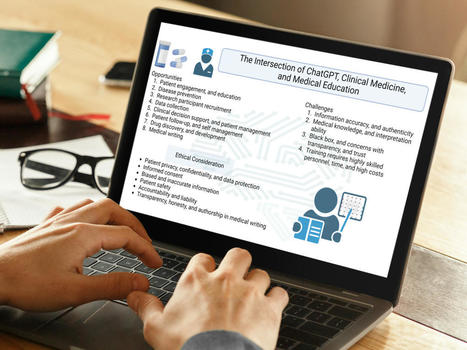As we progress deeper into the digital age, the robust development and application of advanced artificial intelligence (AI) technology, specifically generative language models like ChatGPT (OpenAI), have potential implications in all sectors including medicine.
ChatGPT, a generative language model launched by OpenAI in November 2022 has essentially has essentially revolutionized the IT world.. What makes ChatGPT a promising tool is the vast amounts of data used in its training and its ability to generate human-like conversations covering diverse topics.
The unprecedented capacity of ChatGPT to generate human-like responses, refined through Reinforcement Learning with Human Feedback, could significantly reshape the pedagogical methodologies within medical education.
The use of AI in medicine, including the use of generative language models, is often accompanied by challenges and contentions. Some common challenges include privacy, data security, algorithmic transparency and explainability, errors and liability, as well as regulatory issues associated with AI medicine.
Lately, the use of generative language models in scientific writing has also stirred up controversies in the academic and publishing communities. Some journals have declined ChatGPT as a coauthor, whereas others have happily accepted manuscripts authored by ChatGPT
Through a comprehensive review and the authors’ personal experiences, this viewpoint article elucidates the pros, cons, and ethical considerations of using ChatGPT within clinical medicine and notably, its implications for medical education.
This exploration is crucial in a transformative era where AI could potentially augment human capability in the process of knowledge creation and dissemination, potentially revolutionizing medical education and clinical practice.
The importance of maintaining academic integrity and professional standards is highlighted. The relevance of establishing clear guidelines for the responsible and ethical use of AI technologies in clinical medicine and medical education is also emphasized.
read the whole article at https://mededu.jmir.org/2023/1/e47274



 Your new post is loading...
Your new post is loading...







